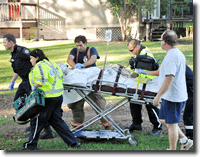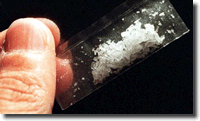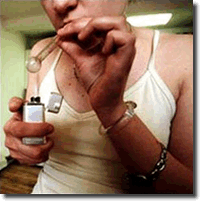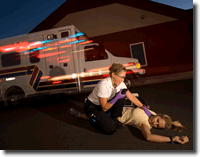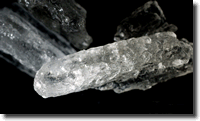
Meth Overdose
A meth overdose can happen when the amount of meth taken exceeds what the body can tolerate. This can vary from person to person and there is no way of telling exactly what amount of meth could cause a meth overdose. Because meth varies in purity and each person will have a different sensitivity to the drug, the meth overdose amount for one person may not cause a meth overdose in another person. A meth overdose may also be complicated by other drugs or medications the user may have taken or by pre-existing health conditions that the user may have.
Meth overdose occurs as a rapid onset of physiological deterioration, eventually leading to a heart attack or stroke. During a meth overdose, a person will experience profuse sweating, rapid breathing, hyperactivity, increased heart rate, dilated pupils, increased blood pressure, increased body temperature, muscle pain and can proceed into heart attack, stroke, coma and death. Meth overdose often occurs suddenly and unexpectedly. A fatal meth overdose will usually occur without the victim even realizing or knowing that he or she is experiencing a meth overdose.
Meth is extremely addictive. The effects of meth produce a rapid pleasurable, euphoric feeling, which is followed by feelings of depression and irritability when the drug wears off. Users will seek and use more meth in order to get back to that state of pleasure, or to just feel "normal" again, which results in this dangerous cycle that leads to meth overdose.
Meth Overdose Symptoms Include:
- Dilated pupils
- Hyperthermia (high temperature) with sweating
- Dehydration, characterized by dry mouth and lips, and lack of urination
- Chest pain
- Very fast or very slow heartbeat
- Irregular heart beat
- Difficulty breathing
- Muscle twitches
- Seizures
- Hallucinations or psychosis
- Shock
- Coma
Remember the 4 H's: Indicators of a meth overdose
- Hot
- Heart
- Head
- Have a fit
What should you do if you or someone you know is suffering a meth overdose?
Dial 911 immediately.
Do not be scared to dial 911. Emergency operators and ambulance officers do not routinely notify police in the event of an overdose. Do not take the person to a doctor or hospital yourself or allow others to do so - this wastes precious time.
Reduce stimulation
Move the person to a quiet, safe place away from people, noise, light and heat.
Cool the body
Loosen or remove tight or hot clothing and apply icepacks to neck, underarms and groin; or thoroughly wet a towel with cold water and place over the person’s body (not face) to reduce temperature.
If unconscious...
Place the person on his or her side to make sure that breathing is not obstructed.
If muscle spasms or fits occur...
Remove anything from around the person that could cause injury. Don't sit on the person or restrain in any way.
Reassure
Stay with the person until the ambulance arrives, keep calm, and give lots of reassurance.
During a meth overdose, emergency medical personnel can only treat the symptoms. They might try to:
- Rehydrate the person
- Lower body temperature
- Lower blood pressure
- Regulate heart rate
- Restore heart rate after heart stops
- Stop convulsions
A Story of Meth Overdose
Melissa, a 23 year old Hispanic female, arrived to Crimson Creek Emergency Clinic at 8:20 pm, after her Brother found her lying unconscious on her bedroom floor and choking on her own saliva. Melissa's initial examination reported the following: Dilated pupils, extremely rapid heart rate, extremely high temperature, and her blood pressure was abnormally high.
The attending physician immediately ordered IV fluids for Melissa to rehydrate her and lower her body temperature. After some time, while nurses were checking up on her, Melissa began to show signs of heart attack. The emergency team was rushed in to begin administering CPR in desperate attempt to revive her. Their efforts were successful.
Melissa was then transferred by Flight Life helicopter to St. Luke’s Hospital. During the flight, the emergency technician checked her blood pressure again and it was still extremely high as well as her heart rate. She was given medication to attempt to control her heart rate as well as for her blood pressure. Just before landing at the hospital, Melissa began to suffer another heart attack. This time, emergency personnel were unable to revive her, and Melissa died at 11:13pm. Urinalysis Lab results later concluded a fatal amount of Methamphetamine in Melissa's system.
Fortunately, this is a fictional story of a meth overdose, but genuine occurrences of meth overdose, similar to Melissa's story, are happening much too frequently and they are increasing every year. Statistics show that between 1998 and 2002, death from meth overdose rose 125 percent. Between 1998 and 2000, meth related emergency room visits doubled. In the past few years, the use of this drug has increased dramatically in teenagers from 12 to 17 years old.



